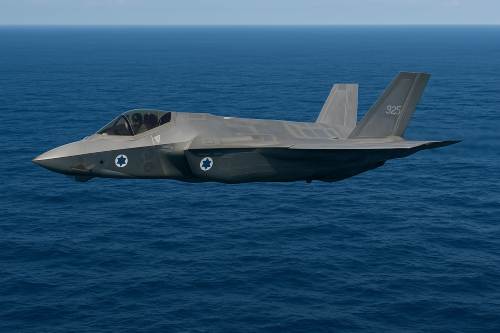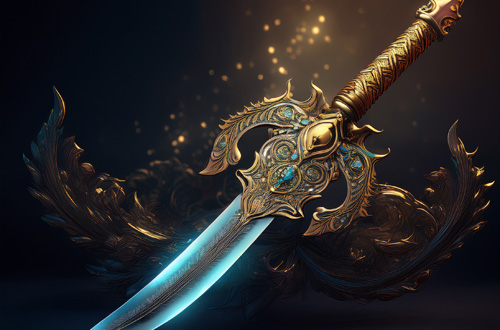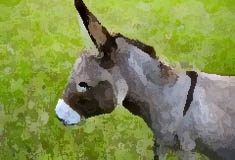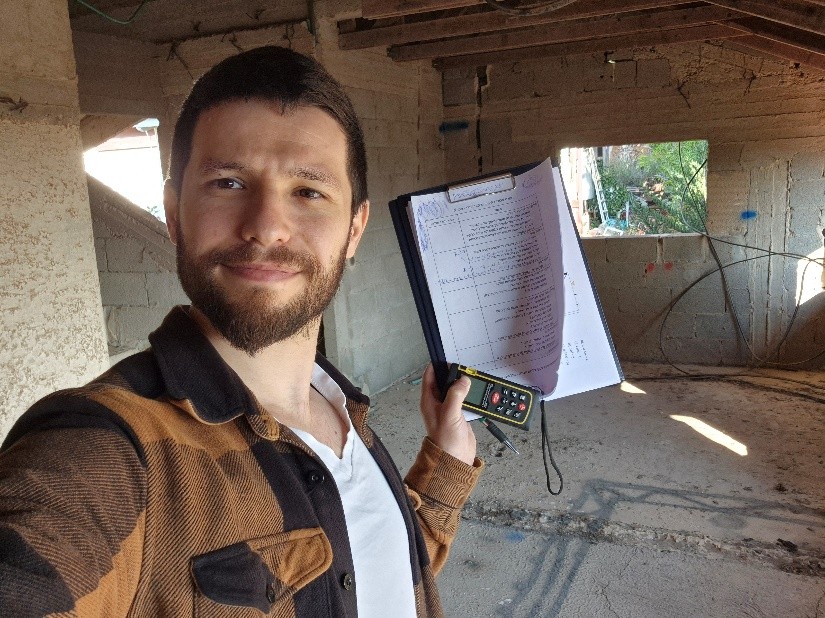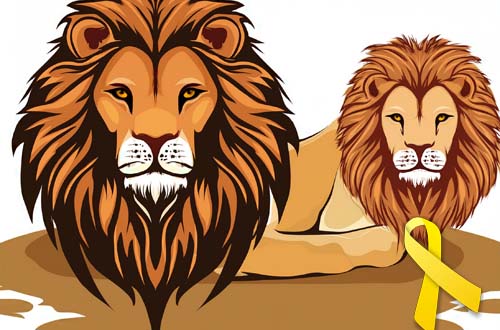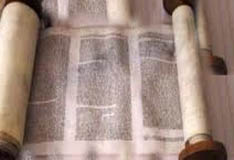Nation Rises Like a Lion —Who Shall Stand Before It?
הרב שי טחןא תמוז, תשפה27/06/2025In history, the Jewish people have carried many titles "nation of priests,” “light unto the nations,” and “stiff-necked people.” But among the most striking images is that of the lion
תגיות:עם כלביאעם ישראלמלחמה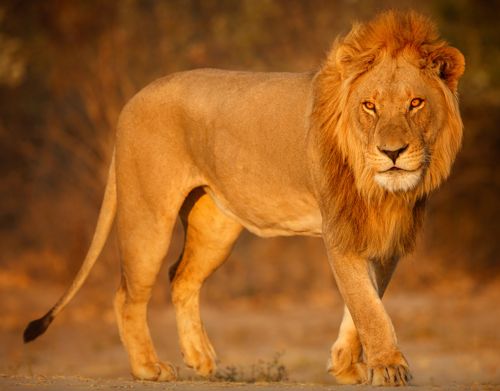
צילום: נוצרה על ידי בינה מלאכותית
Throughout history, the Jewish people have carried many titles—“a nation of priests,” “a light unto the nations,” and “a stiff-necked people.” But among the most striking images is that of the lion. Fierce, noble, and unafraid, the lion represents more than strength—it embodies spiritual might, moral courage, and the ability to rise against all odds. From the blessings of Yaakov to the prophecies of Bilam, from ancient battlefields to modern-day wars, the lion has stood as a symbol of Jewish resilience and bravery.
This symbolism is not merely poetic. When Israel launched a powerful strike against Iran, the operation was named "Nation Rises Like a Lion"—a reference to Bilam’s prophecy: “Behold, a nation rises like a lioness, and like a lion it lifts itself up” (Bamidbar 23:24). The choice of this name wasn’t accidental; it reflected the same enduring spirit that has defined Jewish courage for millennia.
not merely poetic. When Israel launched a powerful strike against Iran, the operation was named "Nation Rises Like a Lion"—a reference to Bilam’s prophecy: “Behold, a nation rises like a lioness, and like a lion it lifts itself up” (Bamidbar 23:24). The choice of this name wasn’t accidental; it reflected the same enduring spirit that has defined Jewish courage for millennia.
The Ramban (Bamidbar 8:18) writes: "It is known that Israel are valiant and courageous in battle, for they are likened to lions and wolves that seize prey, and they conquered the kings of Canaan in battle." This statement reveals not only a historical truth about our victories but also a deeper identity trait embedded within the Jewish soul—courage and fearlessness in the face of conflict.
In the past, we wrote about the connection between our nation and the image of the lion. But today, with the historic attack on Iran, this comparison takes on new meaning—especially when viewed through the precise and prophetic insight of the Or HaChayim:
"Behold, it is a nation that arises like a lion etc." "לביא" refers to a young lion rising for the first time. Typically, inexperienced soldiers do not demonstrate great bravery in their initial battles. But not so with the lion—it displays courage from its very first confrontation. Bilam attributes this trait to the Jewish people: despite emerging from centuries of slavery, they showed remarkable valor, defeating mighty kings like Sichon and Og. Bilam continues, 'וכארי יתנשא'—'and like a lion he shall lift himself'—highlighting another contrast: while other nations grow weary and weakened from repeated wars, the Jewish people rise again and again with the strength of a mature lion, never showing signs of fatigue or decline."
The analogy of the Ohr HaChayim HaKadosh, who lived over 250 years ago, is both powerful and deeply relevant to our times. He compares Am Yisrael to a young lion cub that rises to pounce even before it has fully matured. This vividly reflects the story of the Jewish nation, which rose from the ashes of the Holocaust to confront multiple powerful Arab armies surrounding it. Like the lion cub, Israel rose to the challenge despite being outnumbered and seemingly weaker—armed with extraordinary courage and deep trust in Hashem. And just like the lion, repeated wars did not weaken or exhaust this small nation, but only sharpened its strength and resolve to persevere and triumph in every battle for survival.
Here’s a more concise and engaging version with midrashic tone and sharp insights:
One of the earliest and most powerful comparisons between the Jewish people and a lion appears in Yaakov’s blessing to Yehudah (Bereishit 49:9):
"גּוּר אַרְיֵה יְהוּדָה... כָּרַע רָבַץ כַּאַרְיֵה וּכְלָבִיא מִי יְקִימֶנּוּ."
“A lion cub is Yehudah… He crouches and lies like a lion—who shall rouse him?”
Yehudah is not merely fierce—he is royal. Like a lion, he doesn't chase glory; he rests with confidence, and when he rises, the world trembles. The Midrash teaches that this lion-like strength was passed on to his descendants. That’s why we are called Yehudim—not just by lineage, but by nature.
This isn’t about brute force. “From the prey, my son, you rose”—Yehudah had the courage to admit failure (with Tamar) and still lead. That’s Jewish strength: rising not by stepping on others, but by standing up with truth.
The Shulchan Aruch, the foundational guide to a Jew’s daily conduct, opens with the instruction to “wake up like a lion,” symbolizing both inner strength and spiritual courage from the very first moment of the day.
But here’s why this message is so critical: if a lion forgets he’s a lion and begins to see himself as a rabbit, others will treat him like one. He’ll be harassed, hunted, and mocked—because he forfeited his own majesty.
This isn’t just a metaphor. It’s a pattern in Jewish history. When we lose touch with our identity—with the strength, dignity, and spiritual grandeur embedded in our soul—others sense the void and step in to define us instead. When the Jewish people stop seeing themselves as Hashem’s nation, charged with a unique mission and backbone of courage, the world stops seeing it too. We blend in, shrink back, and are no longer feared or respected.
But a lion who remembers who he is doesn't need to roar all the time. His very presence commands awe. When we carry ourselves with inner clarity, rooted in Torah and emunah, the world reacts differently. Respect returns. Fear returns. Order returns.
This is why remembering our true nature is not just inspiration—it’s protection. Our survival has always depended not only on Hashem’s miracles but also on our refusal to forget who we are.
But the more important point is this: we, as a nation, represent Hashem in this world. We are His ambassadors among the nations, His reflection on earth. And Hashem expects us to carry ourselves as royalty—not with arrogance, but with dignity, purpose, and moral strength.
A king’s honor is measured by the stature of his emissaries. If we walk hunched, uncertain, or afraid—how does that reflect on the King we serve? But when we rise with confidence, act with integrity, and live with courage and clarity, we bring glory to His Name.
This is why we cannot afford to live small. We must rise to the task—not just for ourselves, but because Hashem’s kavod depends on it. When the Jewish people walk like lions, the world remembers the majesty of the Creator they serve. And when we forget, the world forgets too.
Our strength, our nobility, our very presence must remind the world that Hashem's people are still here—and that His Name lives through us.
This symbolism is

צילום: נוצרה על ידי בינה מלאכותית
The Ramban (Bamidbar 8:18) writes: "It is known that Israel are valiant and courageous in battle, for they are likened to lions and wolves that seize prey, and they conquered the kings of Canaan in battle." This statement reveals not only a historical truth about our victories but also a deeper identity trait embedded within the Jewish soul—courage and fearlessness in the face of conflict.
In the past, we wrote about the connection between our nation and the image of the lion. But today, with the historic attack on Iran, this comparison takes on new meaning—especially when viewed through the precise and prophetic insight of the Or HaChayim:
"Behold, it is a nation that arises like a lion etc." "לביא" refers to a young lion rising for the first time. Typically, inexperienced soldiers do not demonstrate great bravery in their initial battles. But not so with the lion—it displays courage from its very first confrontation. Bilam attributes this trait to the Jewish people: despite emerging from centuries of slavery, they showed remarkable valor, defeating mighty kings like Sichon and Og. Bilam continues, 'וכארי יתנשא'—'and like a lion he shall lift himself'—highlighting another contrast: while other nations grow weary and weakened from repeated wars, the Jewish people rise again and again with the strength of a mature lion, never showing signs of fatigue or decline."
The analogy of the Ohr HaChayim HaKadosh, who lived over 250 years ago, is both powerful and deeply relevant to our times. He compares Am Yisrael to a young lion cub that rises to pounce even before it has fully matured. This vividly reflects the story of the Jewish nation, which rose from the ashes of the Holocaust to confront multiple powerful Arab armies surrounding it. Like the lion cub, Israel rose to the challenge despite being outnumbered and seemingly weaker—armed with extraordinary courage and deep trust in Hashem. And just like the lion, repeated wars did not weaken or exhaust this small nation, but only sharpened its strength and resolve to persevere and triumph in every battle for survival.
Here’s a more concise and engaging version with midrashic tone and sharp insights:
One of the earliest and most powerful comparisons between the Jewish people and a lion appears in Yaakov’s blessing to Yehudah (Bereishit 49:9):
"גּוּר אַרְיֵה יְהוּדָה... כָּרַע רָבַץ כַּאַרְיֵה וּכְלָבִיא מִי יְקִימֶנּוּ."
“A lion cub is Yehudah… He crouches and lies like a lion—who shall rouse him?”
Yehudah is not merely fierce—he is royal. Like a lion, he doesn't chase glory; he rests with confidence, and when he rises, the world trembles. The Midrash teaches that this lion-like strength was passed on to his descendants. That’s why we are called Yehudim—not just by lineage, but by nature.
This isn’t about brute force. “From the prey, my son, you rose”—Yehudah had the courage to admit failure (with Tamar) and still lead. That’s Jewish strength: rising not by stepping on others, but by standing up with truth.
The Shulchan Aruch, the foundational guide to a Jew’s daily conduct, opens with the instruction to “wake up like a lion,” symbolizing both inner strength and spiritual courage from the very first moment of the day.
But here’s why this message is so critical: if a lion forgets he’s a lion and begins to see himself as a rabbit, others will treat him like one. He’ll be harassed, hunted, and mocked—because he forfeited his own majesty.
This isn’t just a metaphor. It’s a pattern in Jewish history. When we lose touch with our identity—with the strength, dignity, and spiritual grandeur embedded in our soul—others sense the void and step in to define us instead. When the Jewish people stop seeing themselves as Hashem’s nation, charged with a unique mission and backbone of courage, the world stops seeing it too. We blend in, shrink back, and are no longer feared or respected.
But a lion who remembers who he is doesn't need to roar all the time. His very presence commands awe. When we carry ourselves with inner clarity, rooted in Torah and emunah, the world reacts differently. Respect returns. Fear returns. Order returns.
This is why remembering our true nature is not just inspiration—it’s protection. Our survival has always depended not only on Hashem’s miracles but also on our refusal to forget who we are.
But the more important point is this: we, as a nation, represent Hashem in this world. We are His ambassadors among the nations, His reflection on earth. And Hashem expects us to carry ourselves as royalty—not with arrogance, but with dignity, purpose, and moral strength.
A king’s honor is measured by the stature of his emissaries. If we walk hunched, uncertain, or afraid—how does that reflect on the King we serve? But when we rise with confidence, act with integrity, and live with courage and clarity, we bring glory to His Name.
This is why we cannot afford to live small. We must rise to the task—not just for ourselves, but because Hashem’s kavod depends on it. When the Jewish people walk like lions, the world remembers the majesty of the Creator they serve. And when we forget, the world forgets too.
Our strength, our nobility, our very presence must remind the world that Hashem's people are still here—and that His Name lives through us.
הוסף תגובה
עוד מהרב שי טחן
עוד בנושא עם וארץ ישראל



